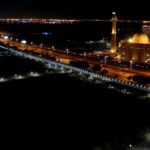Mauritius, officially the Republic of Mauritius. The country is an Indian Ocean island nation located about 2,000 kilometers east of Madagascar on the African southeast coast. Port Louis is the capital and largest city in the country. The nation covers 2,040 square kilometers and has a 2.3 million square kilometer Exclusive Economic Zone. Because of its demography, the people are ethnically, culturally, linguistically, and religiously diverse. Hinduism has been widely practiced in Mauritius as compared to the other African countries. The country is well-known for its democracy and economic independence.
Mauritius is listed as a high-income economy by the World Bank. Its economy is one of the most successful in the African region. Mauritius provides free universal health care, free education through tertiary education, and free public transit for students, seniors, and the disabled. Mauritius was the most peaceful African nation by the Global Peace Index in 2019.
Geography
The country’s total land area is 2,040 square kilometers. It is the world’s 170th largest country in terms of land area. The main Islands and other outlying islands make up the Republic of Mauritius. The nation’s Exclusive Economic Zone (EEZ) spans approximately 2.3 million sq. km of the Indian Ocean. It shares about 400,000 sq. km with Seychelles.
More than 150 kilometers of white sand beaches surround the island. The lagoons are shielded from the open sea by the world’s third-largest coral reef. There are 49 uninhabited islands and islets off the coast of Mauritius. Many of them have been designated as natural reserves for endangered species.
Environment & Climate
The climate is usually tropical in the Coastal region. Mauritius has a tropical climate due to its location in the Tropic of Capricorn. Seasonal cyclones distress the flora and fauna of the island. In 2011, World Health Organization published an air quality index that placed Mauritius second. There are two seasons: a warm humid summer with a average temperature of 24.7 °C from November to April, and a relatively cold dry winter with average temperature of 20.4 °C from June to September. The temperature variation is just 4.3 degrees Celsius. January and February are the warmest months.
On an average daily maximum temperature is 29.2 °C. July and August are the coolest, with an average overnight minimum temperature of 16.4 °C. The annual rainfall varies from 900 mm on the central plateau to 1,500 mm on the coast.
Governance of Mauritius
Mauritius is a democratic country with a five-year-old administration. Elections have traditionally been a battle between two major party unions. Mauritius was at the top of the Ibrahim Index of African Governance in 2018. Mauritius is the only African-country with “absolute democracy” according to Democracy Index.
Foreign Relation of Mauritius
Geographically, Mauritius is part of Africa. Mauritius has close and friendly relations with Africa, America, Asia, Europe, and Oceanic countries. It has friendly ties with other African countries in the region, especially South Africa. Mauritian investors are making inroads into African markets, especially Madagascar, Mozambique, and Zimbabwe. Due to the country’s political heritage and reliance on Western markets, the European Union and its member states, especially France, have developed close relations.
Mauritius is a member of:
- World Trade Organization Commonwealth of Nations
- La Francophonie
- African Union
- Southern Africa Development Community (SADC)
- Indian Ocean Commission
- COMESA
- Indian Ocean Rim Association
- World Trade Organization.
Language
The National Assembly’s official language is English, according to the Constitution. However, any member may address the chair in French. English and French are the languages of government administration, courts, and commerce. Mauritian Creole is people’s first language, they are also fluent in English and French.
French and English are used in educational and professional organizations. Asian languages are used in music, religion, and cultural activities. Students must study English and French in school, with the option of learning an Asian language. The language of instruction varies by school, but it is usually Creole, French, or English.
Education
The education system consists of the primary, secondary and tertiary sectors. The educational structure consists of two to three years of pre-primary education, six years of primary education leading to the Certificate of Achievement of Primary Schools, five years of secondary education leading to the Certificate of Schools, and two years of higher secondary education ending with the Higher School certificate.
The Government offers free education from pre-primary to tertiary levels to its residents. The University of Cambridge administers the O-Level and A-Level exams. The University of Mauritius and the University of Technology are the two largest public universities, with the Université des Mascareignes, established in 2012. The adult literacy rate was approximately 92.7 percent in 2015.
Economic Condition of Mauritius
Mauritius has progressed from a low-income, agriculture-oriented economy to a high-income, diversified economy based on tourism, textiles, sugar, and financial services. Mauritius’s economic history since independence has been dubbed “the Mauritian Miracle” and “Africa’s Prosperity”. Information and communication technology, seafood, hospitality and property production, healthcare, renewable energy, and education and training have all become important sectors in recent years. Attracting significant investment from both domestic and international investors.
Mauritius has one of the world’s largest exclusive economic zones, and the government declared in 2012 that it intends to expand the marine economy. Mauritius is a highly competitive economy with a favorable investment environment, good governance, and a free economy. In 2019 Mauritius ranked 13th out of 190 economies in terms of ease of doing business. The State’s success has been based on a free market economy. Mauritius is 9th in the world in terms of economic freedom.



